August 11th, 2022
Despite new modes of monitoring and capturing data, the ocean and its complex interdependent aquatic ecosystems are still relatively unmapped. Roughly 85% of it remains ‘unexplored’ – due to a vast set of operational and cross jurisdictional challenges. Yet this situation is quickly evolving – we are now in a period defined by the UN as the ‘Decade of Ocean Science for Sustainable Development’, accompanied by global calls and efforts by academic and scientific communities to strengthen our understanding of marine habitats and functioning, while nuancing our awareness of how human interventions (pollution, fishing activities, development, etc.) affect these conditions.
In July, several countries also adopted the new Lisbon declaration at the United Nations Oceans Conference. Actions that stem from this declaration include: “strengthening data collection, recognising the role of indigenous people in sharing innovation and practices to reducing greenhouse gas emissions from international maritime transportation, especially shipping”.
However, in a world where data is also intricately intertwined with driving profit for private sector entities, there is growing commercial interest in collating data on oceanic ecosystems for activities like deep-sea mining for minerals – projected to be highly damaging for marine ecosystems. This calls for greater exploration into how we can incentivize a move away from extractive physical and data-related practices towards a paradigm of interventions which would meaningfully orient actors around common goals of oceanic conservation and data stewardship.
Additionally, while there is momentum building around sustainable development-oriented data efforts, aside from progressive rhetoric, many of these initiatives are still largely exclusive processes. Consequently, communities most vulnerable to effects of climate change are left out of conversations around sustainability. The United Nations Oceans Conference for instance was criticised by small-scale fishers and indigenous people who argued these sessions were inaccessible and excluded them during important decision-making processes. This lack of representation and ability to participate in shaping systems of conservation and resilience ignores the long-standing role of indigenous communities in ‘stewarding’ these resources. These systemic forms of exclusion also trickle down to the design and deployment of data-collection and governance efforts.
Therefore, while there are a growing set of efforts to monitor, reconcile and coalesce data that pertain to marine conservation and fishing – these must be designed to also be inclusive of indigenous modes of data collection and governance. Further, there is also a need to find new approaches to strengthen participation and agency within existing systems.
This case study review focuses primarily on the evolving landscape of fisheries or oceanic data management to understand how it is currently being captured, managed, preserved and shared. This area of inquiry was selected as our research highlights this domain has a growing set of existing stewards and organisations that are spearheading efforts which are trust-preserving and fisher-centric. Deriving lessons from these organisations can be crucial in understanding how they can be scaled across regions and better inform global conservation efforts.
Understanding the fisheries management ecosystem and role data plays within it
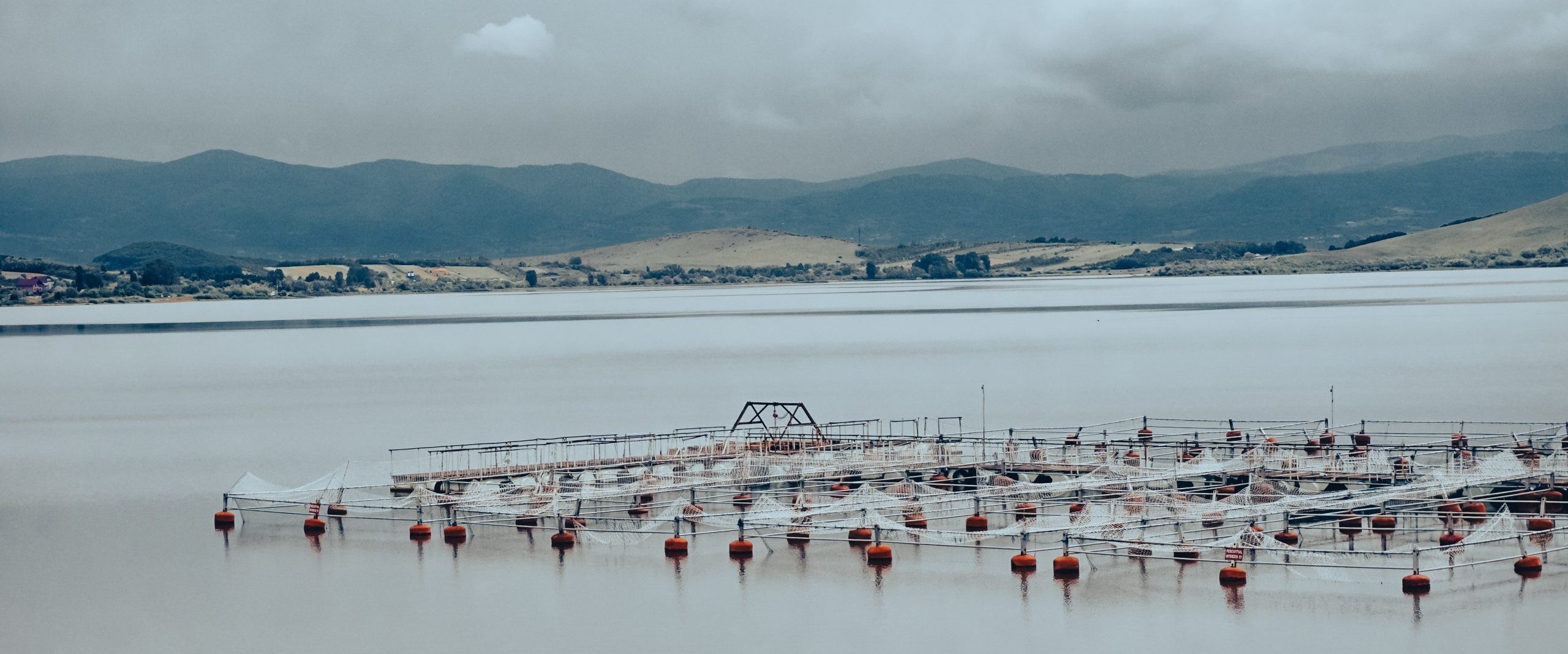
Fishing represents one of the largest maritime industries in the world, both in terms of the number of people involved as well as the economic value associated with it. Fishing from capture fisheries, i.e., fishing from natural sources such as seas, rivers and lakes for commercial purposes, constitutes a predominant segment of the larger fishing industry. As of 2017, around 120 million people were involved in capture fisheries, with more than 90% of these people involved in small-scale fisheries. Aside from being a significant source of employment, capture fisheries are also an essential source of nutrition for millions around the world – making capture fisheries critical for food security and nutrition. However, as of 2018, over 35% of fisheries were overfished with this number only rising in the subsequent period.
Fisheries management has been a critical part of the functioning of international organisations for decades, but has taken on renewed importance in light of increased demand for marine life for commercial purposes leading to an uptick in illegal, unregulated or unreported fishing. The goal of fisheries management is to promote and facilitate sustainable fisheries which ensure that marine life is harvested at a sustainable rate so as to prevent the decline of aquatic life population over time. The Marine Stewardship Council, an international non-profit, foregrounds three main principles in their assessment of sustainability of fisheries: (1) Sustainable Fish Stock; (2) Minimising Environmental Impact; and (3) Effective fisheries management. Given the socio-economic impact that fisheries have, ensuring the growth of sustainable fisheries is paramount. This is evident in the call by Members of the European Parliament to increase funding and investment opportunities for sustainable fisheries.
Existing challenges around data and their impact in the fisheries data ecosystem
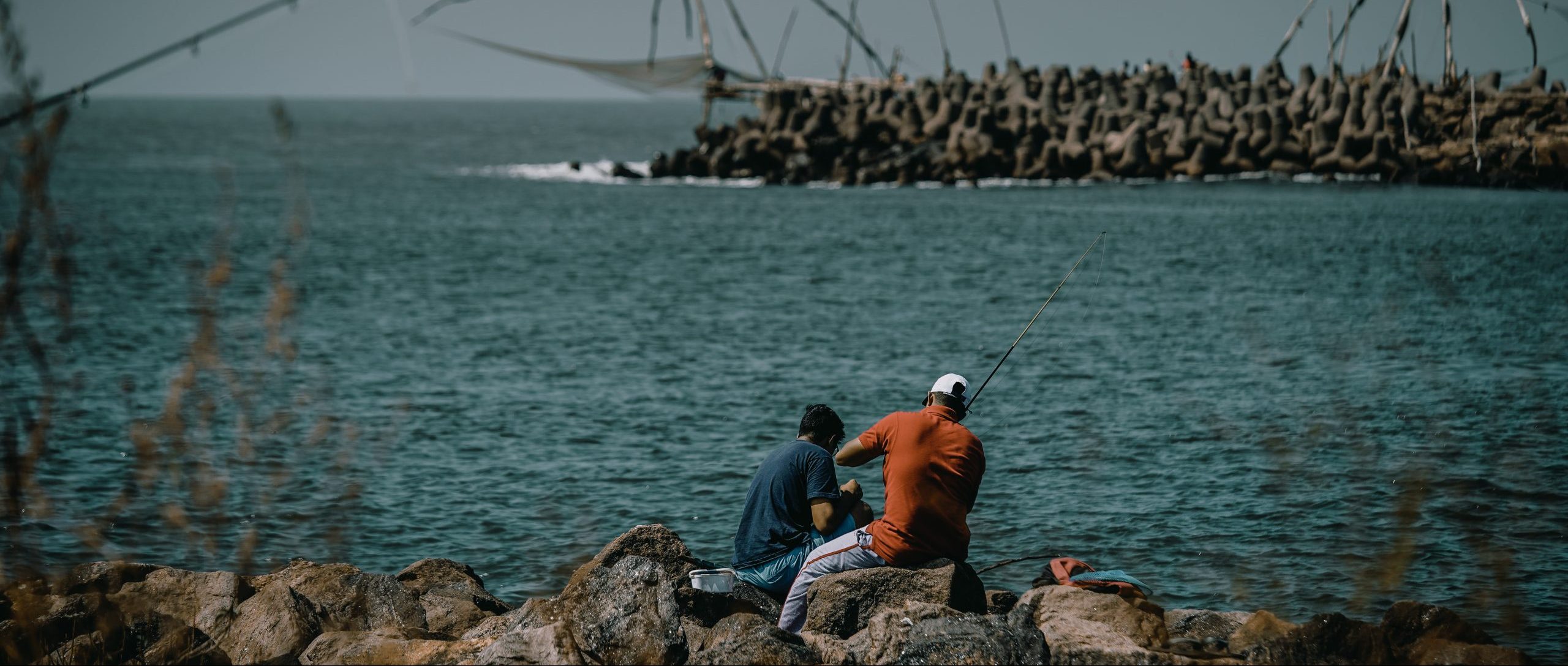
A critical factor in ensuring the continued sustainability of fisheries is the availability of “fisheries data”, data that usually includes biological information about the exploited fish and associated species, economic information about the fishermen and the markets for the catch, and information about the environmental conditions that affect the productivity of the species. The FAO has been developing an international framework to address fisheries management with a number of instruments governing various aspects of the same. In accordance with this, as well as other international obligations (such as the sustainable development goals), there have been a number of regional and national frameworks around collection of fisheries data for better fisheries management. However, despite this, there remains a paucity of adequate and reliable fisheries data for many countries.
This issue is particularly severe in developing and low-income regions containing numerous small-scale fisheries. This paucity of data has consequent effects on the ability of governments to implement policy to adequately tackle illegal, unregulated or unreported fishing, thereby allowing for unmonitored fishing that has severe socio-economic consequences, most importantly for members of the local communities in such areas. An additional issue with the collection and analysis of fisheries data is that fishers and local community members have typically been treated only as a source of data, as opposed to being looked at as contributing scientists. In addition to having deleterious consequences on local fishing communities, such practices also lead to the ignorance or loss of indigenous knowledge that can vastly impact sustainability in fishing. For example, a recent study of indigenous practices around oyster fisheries in North America and Australia revealed key takeaways that can be used to inform sustainable fisheries management globally. Similarly, another study on the use of traditional practices in the harvesting of Kelp along the northwest coast of North America concluded that customary management practices and social norms rooted in indigenous knowledge promote system-wide social–ecological resilience, and importantly, can empower local decision makers and democratize the science and practice of natural resource management.
Similarly, citizen science fisheries initiatives that place an emphasis on building capacity of fishers and local community members to collect accurate and high-quality fisheries data have also shown great potential in addressing the paucity of fisheries data faced by scientists and policy makers. Citizen science projects developed in collaboration with small-scale fishing communities in Mexico’s Pacific Ocean, Gulf of California and Caribbean Sea resulted with the projects providing a wealth of data and opportunities, for fishers, researchers and managers – with the data generated being used to evaluate stocks and habitat, detect the impacts of climate change and increase knowledge on fisheries. Furthermore, it has also empowered a network of local leaders, who are now transmitting a message of environmental stewardship in their communities.
Promising efforts to responsibly collect and steward data related to fisheries management
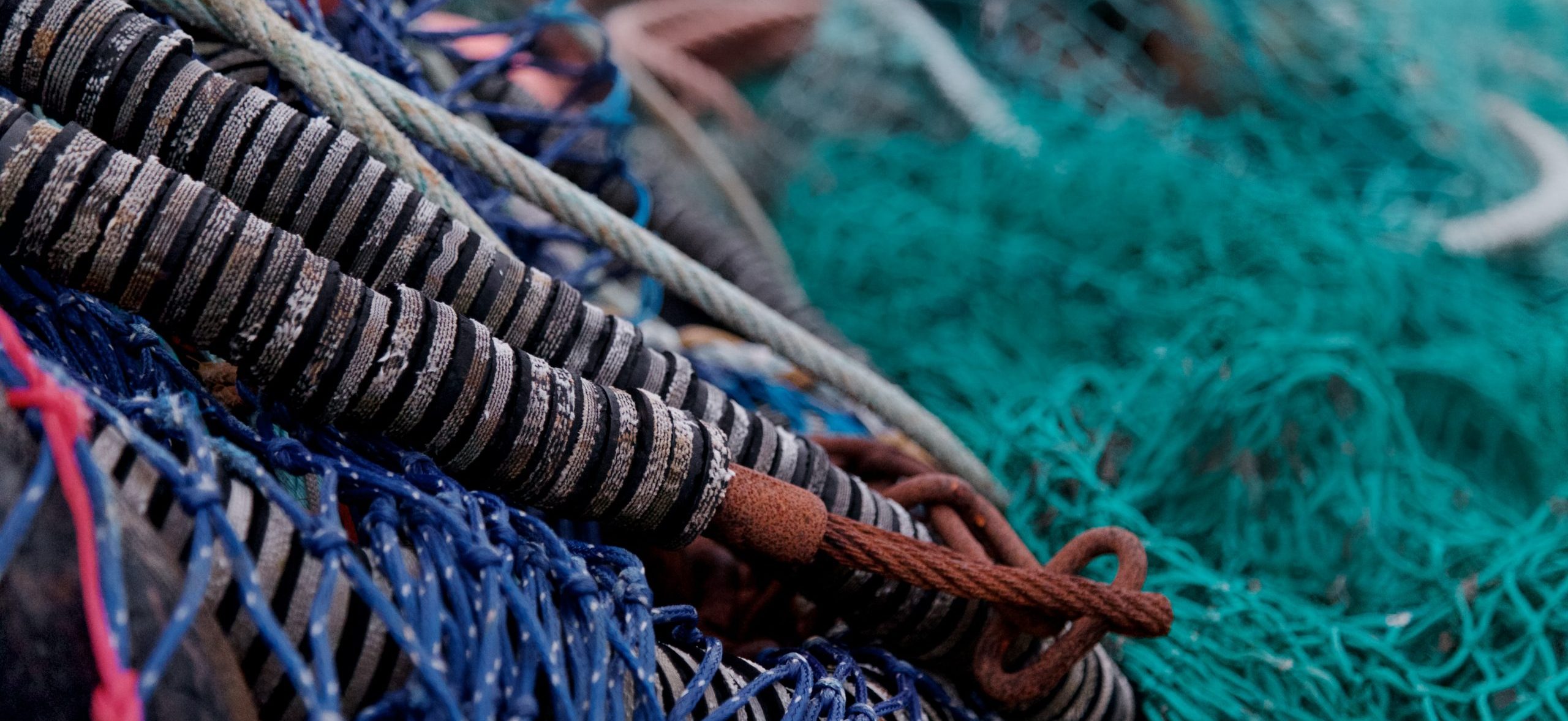
In this context, through our research at the Data Economy Lab, we have seen a range of new initiatives that seem to intertwine high-levels of community involvement, participation and stewardship of data for fisheries management. These illustrate the possibilities that community-oriented data-driven fisheries management may hold and must be further unpacked if we are to understand and forge its pathways for replication, adaptation and scale at a global level.
This blog focuses specifically on four cases, where the first, PescaData has been featured in an episode on our video series, Tracking Stewardship. In addition, it also showcases: Abalobi, DTU Fangstjournalen, California Groundfish Collective and Dakshin Foundation’s work.
PescaData
The video below features a conversation with Stuart Fulton from Comunidad y Biodiversidad – COBI, a civil society organisation that focuses on marine conservation and sustainable development. Their product PescaData is a software as a service that enables the digitalisation of catch records, supports individual fishers in sharing information with their fishing organizations/collectives and enables access to insights on self-generated data. Our discussion highlights key challenges PescaData aims to solve for and outlines their approach to delivering greater value and data justice to fishing communities and collectives in Mexico.
Learnings and areas for further development and application
- COBI may be best defined as an ecosystem enabler organisation that is building the supportive technical infrastructure, tools and capabilities required for communities to practice self-governance over their data. In their experience, this means supporting new end users (collectives) with the onboarding process. Going forward, their aim is for their end-user organisations to be able to navigate their platform – without requiring extensive engagement.
- COBI is invested not only in delivering what it believes may be valuable insights back to communities but is keen to understand how this information is used by users for future decision-making and adaptive management. This evaluation and feedback loop can further product development and ensure more responsive design.
- Acknowledging and integrating pre-existing, traditional knowledge forms and practices from communities is key to PescaData’s vision and design. Their knowledge sharing mechanism enables a peer-to-peer exchange of information – allowing for digitisation of these practices and collaborative enrichment of knowledge sets.
Abalobi
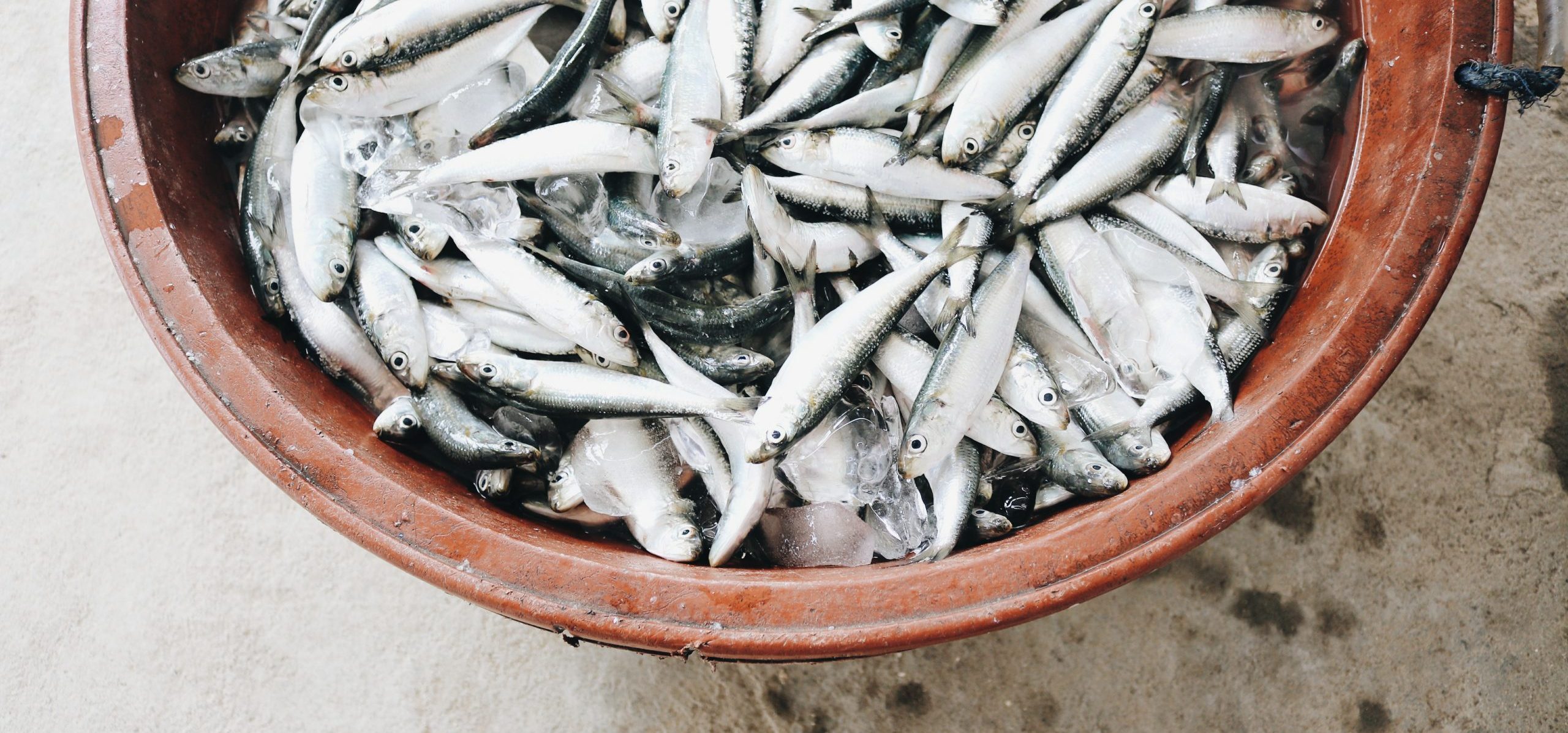
Abalobi is a non-profit social enterprise based in South Africa that seeks to “contribute towards thriving, equitable, climate change resilient and sustainable small-scale fishing communities globally, through the joint development of Technology For Good”. They facilitate this through the use of mobile apps that relate to seafood traceability, fully documented fisheries, fair and transparent supply chains. The provision of mobile apps is supplemented with initiatives designed to deepen community cohesion and entrepreneurship. The ABALOBI FISHER app provides fishers with an e-logbook along with services of data dashboards, basic bookkeeping, permits safekeeping and weather forecasting. The Abalobi MARKETPLACE app provides the local fishers with a marketplace where registered chefs or restaurants can purchase fresh, traceable seafood and post-harvest products offered by approved fishers. This digital marketplace is made available with an integrated area-specific approach to maximise logistical efficiency. The ABALOBI MONITOR app is a digitised community catch monitoring platform for use at the landing site and along the shoreline. Using tablet-based technology, the platform is designed to improve community catch monitoring by providing monitors with dashboards of data collected per fisher and landing site. It also enables communication with fishers, other monitors, and fisheries managers via an integrated chat platform.
What does it aim to solve for in the data economy?
- Providing control over data to the data producers – Being acutely aware of the asymmetries in the data economy, Abalobi is very insistent on the fact that the data collected using their apps belongs first and foremost to the fishers. Abalobi assists the fishers with visualisation of the data they collect using the app, but any external entities that want access to the data are directed to communicate directly with the fishers, with Abalobi acting mainly as an intermediary that holds the data for the fishers.
- Empowerment through collective action and market information – The balance of power in the traditional fishing system meant that fishers were at the short end of the stick with both the government – in terms of seeking permits or petitioning for other policy action – as well as the marketplace – with fishers being price takers who were invisible in the market. Abalobi assists fishers by allowing them to use the app as a tool to showcase their activities and their Bona Fida status while applying for permits. The MARKETPLACE app places the fishers front and centre to potential buyers who are interested in connecting with local fishers, with this also addressing issues of overfishing wastage, and loss of value of the species in the broader community.
- Preserving and sharing local knowledge – Fishers have a wealth of traditional knowledge that can inform sustainable fishing practices. However, in most instances across the globe where traditional knowledge is concerned, methods of accessing and sharing this knowledge are typically extractive. Abalobi provides a creative and respectful way for fishers to record and share their traditional knowledge within the community.
Learnings and areas for further development and application
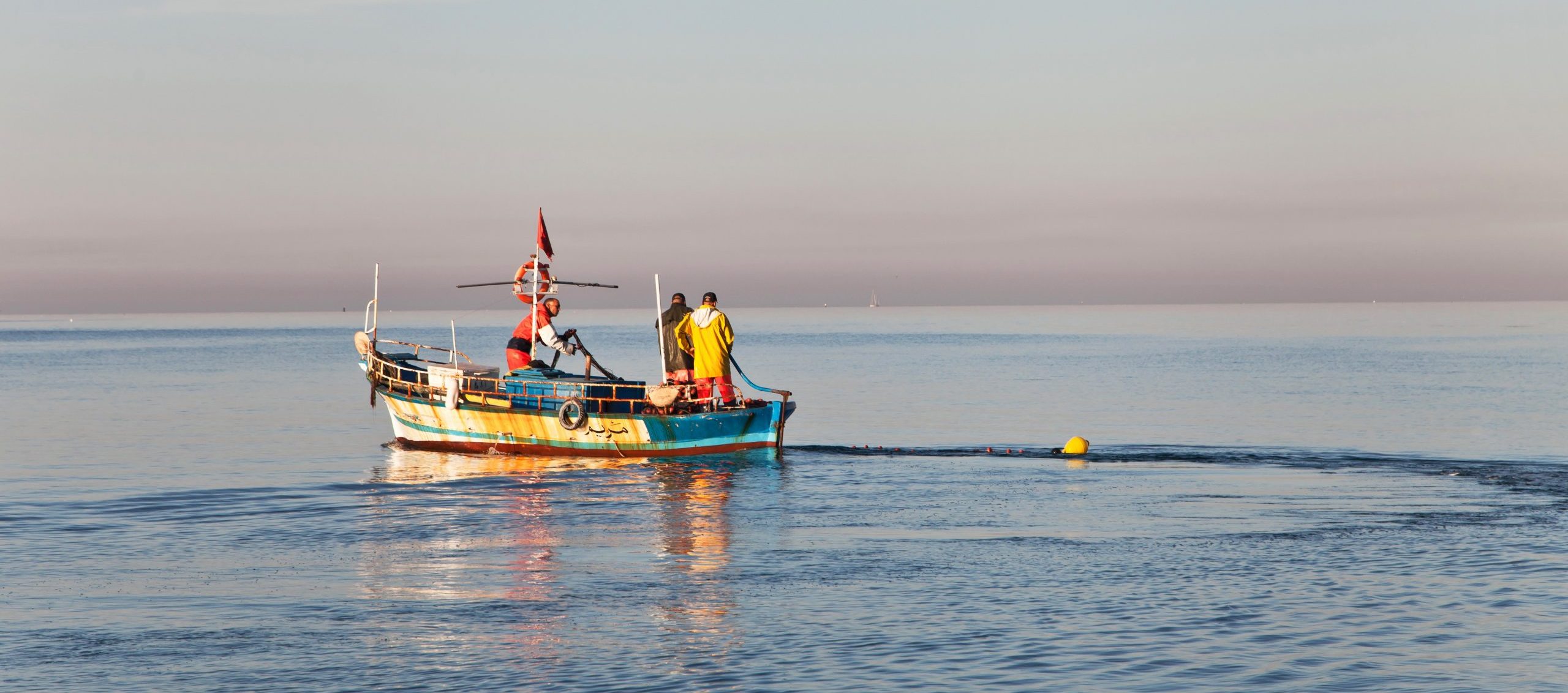
- Abalobi is a steward-like initiative that provides fishers with the tools to capture, visualise and interpret their data. They also provide a marketplace that connects fishers with potential buyers, but aside from this, governance structures ensure that control over the data rests with the fishers who have final say over who their data is shared with and how it is used.
- While the Abalobi mobile apps require the use of the internet, they have been designed through iterative loops that incorporate the concerns of the fishers based on their lived experiences. The apps are designed to be very minimal in their use of data – thus accounting for regular concerns faced by fishers.
- Existing market dynamics reinforce an individualistic culture among fisheries. To address this, Abalobi works with local champions, who are typically early adopters interested in experimenting with digital technologies. By providing organisational and business development support, they have a network of fishers who are integral to the onboarding process and who in time can create formalised collective structures.
- In addition to the provision of the mobile apps and data visualisations, a big part of Abalobi’s work includes community engagement and empowerment. Through their work, Abalobi realised that women played a critical role in the entire fishing process. Women in the fishing communities were logging the catch for their husbands or sons, and they were primarily driving the programme – but conventional gender norms meant their contributions were typically invisibilised. Abalobi ran a woman empowerment programme, where they worked with small groups of women and provided them a safe and healthy working environment. This helped them unlock their own intrapreneurship setup and to coordinate it. Going beyond that, Abalobi has worked with these women as core partners in this process, and over time have seen this lead to the development of a strong collective structure.
- A crucial element in the growth of this model is to build trust within the community and make sure that there is real engagement on the ground. This is facilitated through providing support for anybody who is interested in using the technology. As part of the onboarding package, Abalobi provides a lot of training and capacity building around some of the essential concepts. This includes providing basics of financial literacy, as they realised that many fishers tend to use the app as an accounting tool. Lastly, they explore creative and innovative ways to convey and explain concepts – such as contract clauses that are graphically displayed like in a comic book. All of this helps build greater trust within the community, which in turn helps with the increased adoption of the application.
DTU Fangstjournalen
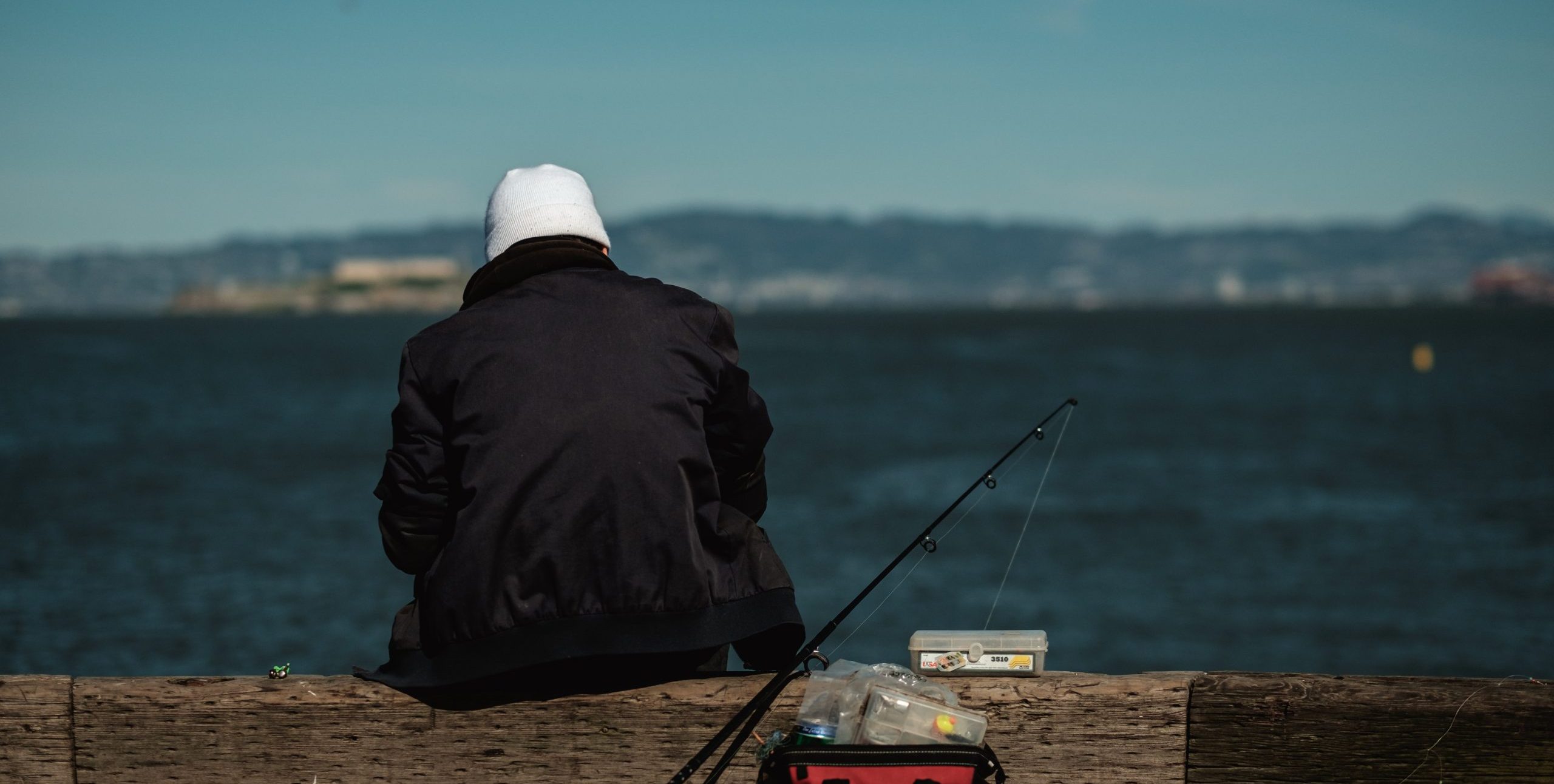
Supported by Technical University of Denmark (DTU), Fangstjournalen is a citizen science project that aims to sustain specific fish populations in Denmark. Fishers or anglers generate this data through an app by logging a range of parameters that include location of catch, duration of trip, species caught and details on its size. Through the aggregated data, DTU can identify the health of certain fish populations. For anglers, the value of this data and benefits related to the app include – greater knowledge around fish populations and their biological characteristics, regular updates on regulations and zoning rules. If anglers are interested, the app also allows them to share their catches with their peers or keep this information private – sharing this only with DTU. The app also enables a degree of social networking for anglers – that can possibly generate the sharing of practices or function as a feedback loop for DTU to better understand what value can be better generated for citizens as a result of data collection. Some interesting use-cases that have been identified through this citizen science project include the identification of parasites/zoonotic diseases, or threats to certain populations like the red skin disease in salmon/trout species through the collection of photos. These forms of knowledge can guide early public health interventions where necessary and be used to generate guidance on handling and consuming fish.
In addition to this non-personal data, Fangstjournalen is also keen to chronicle the wellbeing and interests of anglers – these forms of data also feed into possible collaboration avenues – where anglers can work closely with academics on specific research questions. The methodology of data collection and governance is structured around the FAIR principles – where data must be Findable, Accessible, Integrated/Interoperable and Reused. To start with this involves storing the data in a secure repository (hosted by the university) and the creation of a data management plan. Certain codes, like the DOI, are ascribed to datasets in order to make these ‘Findable’ and ‘Accessible’ to DTU researchers. Data is structured considering open data standards for better ‘Interoperability’ which can facilitate collaboration with international researchers or other citizen science projects – for instance one that seeks to monitor the population of tortoises in a specific region of Denmark. Other data can be ‘Reused’ to inform and surface the health and functioning of certain marine and freshwater ecosystems. Reuse is predicated on standards that make it reliable and high quality for further research.
The quality of the data collected is maintained by referencing it against more traditional methods of data collection and a critical analysis by the team to scan for any emerging anomalies – an absurdly high catch rate or incorrect registration, etc.
Fangstjournalen also implements a number of safeguards to preserve the privacy of data that may possess personal attributes. Sharing is made conditional upon certain license-oriented agreements that it helps facilitate between researchers and students. This prescribes possibilities and conditions around its usage. In order to foster greater scientific awareness and knowledge, Fangstjournalen makes some of this aggregated, de-identified data publicly available through the platform and their Facebook page.
What does it aim to solve for in the data economy?
- Efficient and cost-effective processes – The volumes, spatial and temporal diversity of data required to understand fishing practices and conditions (oceanic and species) can often be a cost-prohibitive and time-consuming process.
- Tapping into the potential of citizens – Traditional means of capturing data through surveys and questionnaires are often complicated to establish and can instead be supplemented with citizen generated, hyperlocal data that can be scaled throughout different parts of the marine ecosystem – rivers, lakes, streams and sea.
- Bridging information asymmetry – There is often an asymmetry of information and limited opportunities available for citizens (anglers) to participate actively in research or knowledge-gathering/development efforts that could facilitate their own livelihoods and operations.
Learnings and areas for further development and application
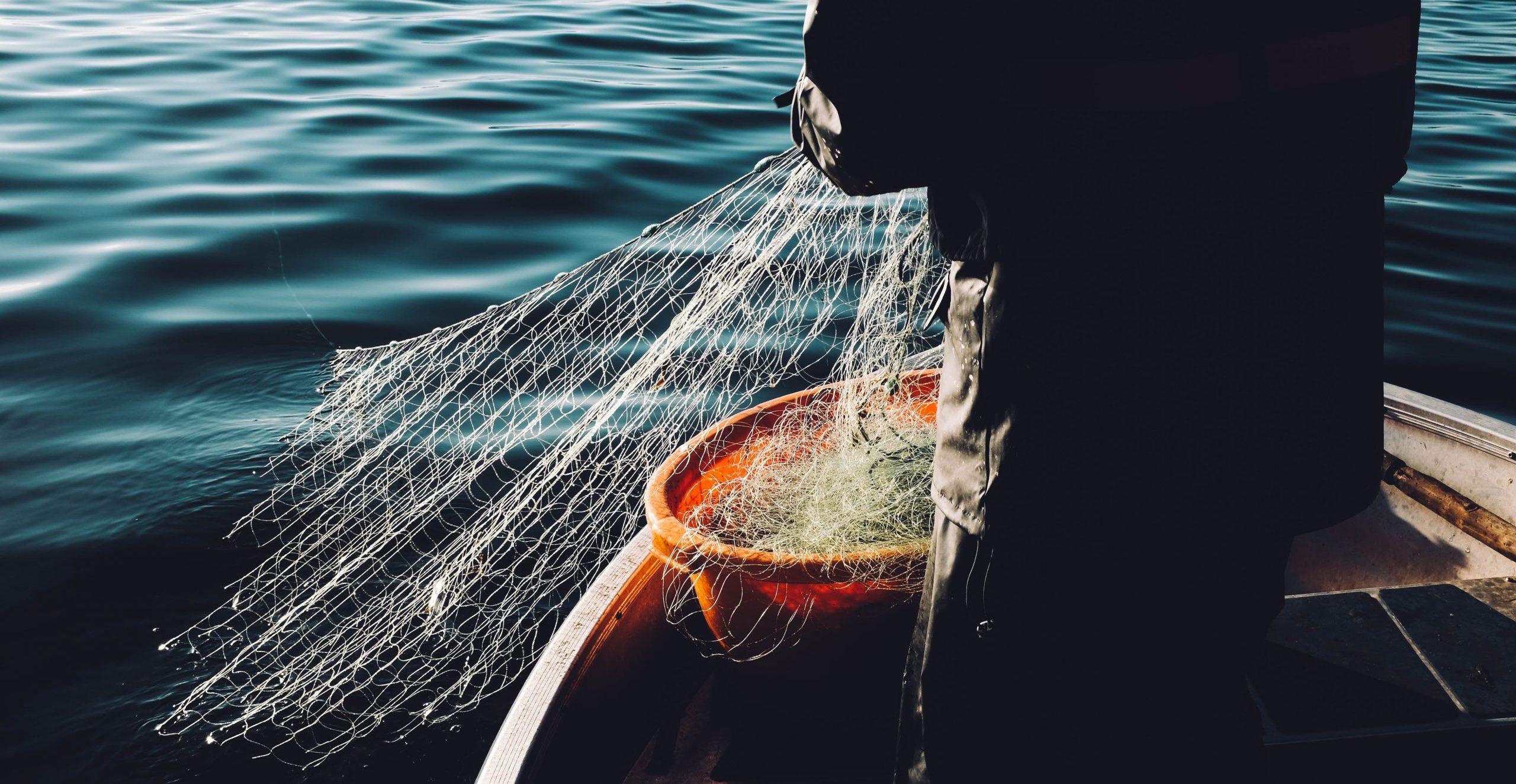
- Fangstjournalen operates as a steward-like initiative that takes on the role of securing data, providing analytics to fishers/anglers and is committed to identifying new streams of value/benefit that can be redelivered to citizens. With the support of DTU, an academic institute, Fangstjournalen is able to draw domain expertise and facilitate real-time collaboration for the re-use of data for furthering knowledge and innovation. Academic Institutions like DTU may also be well-positioned to offer a great deal of technical support – hosting data, implementing quality metrics/standards and carrying out necessary maintenance.
- Data collected by anglers can highlight important aspects of the human experience, dynamics and welfare related to fisheries management that can inform more responsive policies and practices.
- Based on reflections from the DTU team, including the lead researcher and founder of the platform, they shared that while an electronic platform can facilitate ease in the collection of data, the scalability and relevance of findings is predicated on having a critical mass of users (anglers) actively engaged in data collection. Understanding how to continue to onboard anglers will require a thorough dissemination strategy and engagement with the angler communities – both those in informal loose collectives and those with more organised presences.
- Additionally, retention of users and generating a more active usage of the platform an area presents room for further development – a possible solution they have identified is to expand the pool of anglers to international tourist anglers. This may solve for additional concerns around the lack of diversity or representation of the angler community within their existing datasets.
- Further analysis and thought may be lent to exploring how anglers could be a part of the data governance structure – more specifically where the streamlining usage and sharing agreements could present use-cases for collective benefit. For instance, the sharing of data could present benefits around reforming fisher registration processes, support greater access to markets or be used in advocacy for financial products or in shaping better zoning areas for sustainable fishing practices.
California Groundfish Collective (CGC)
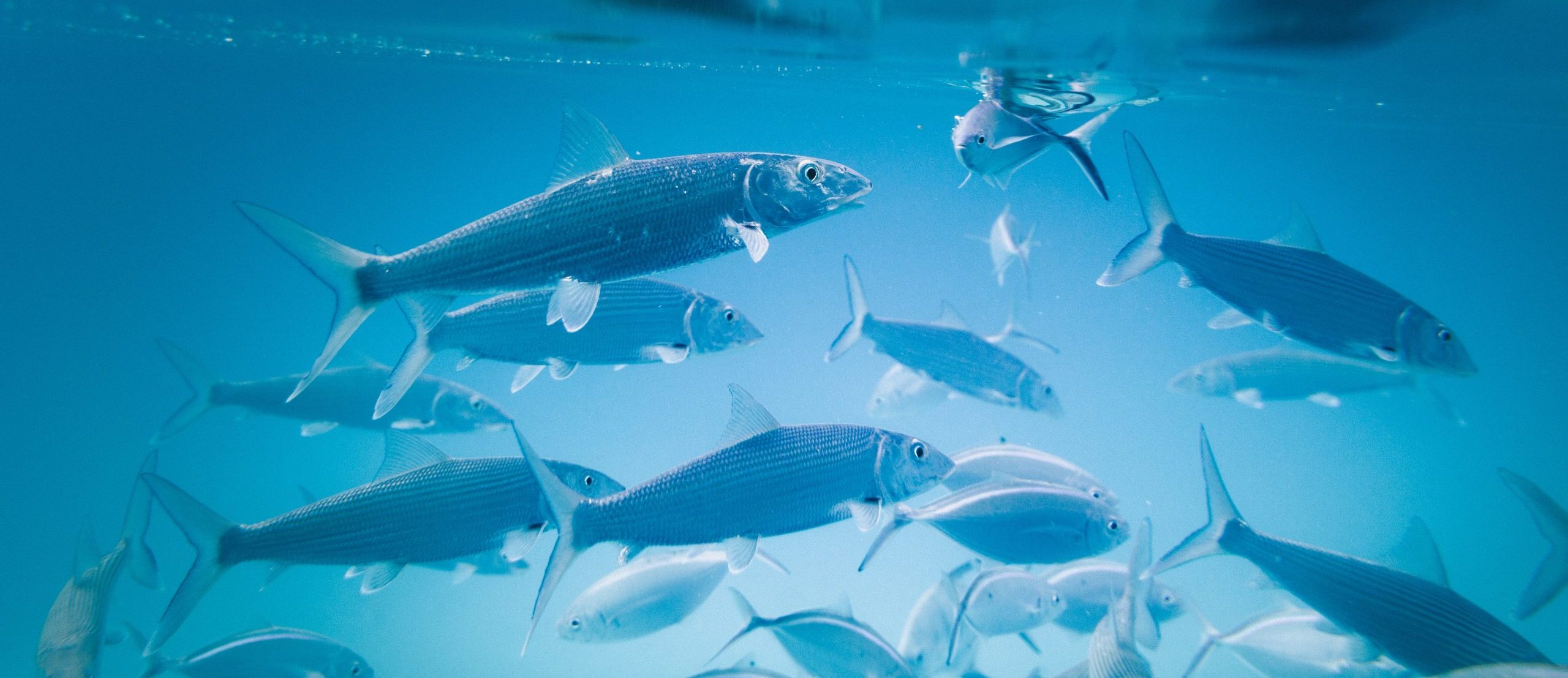
In collaboration with the Nature Conservancy (TNC), the California Groundfish Project brings together fishers from collectives across the West Coast of the state and community leaders with the intent to advance fisheries management and conservation practices. The Nature Conservancy supports the collective in leveraging innovative technologies and facilitates the sharing of data through an app called eCatch.
Their overarching vision is to revive groundfish fisheries (that primarily focus on catching species like the petrale sole, sablefish/black cod etc.). Therefore, much of the data collected can be used to monitor and create necessary guardrails to: prevent the overfishing of species and bycatch and encourage adaptive management – where fishing of these more abundant, healthy species can be made possible.
Through this program, fishers are also encouraged to practice alternative methods to trawling.
What does it aim to solve for in the data economy?
- Establishing trust and deepening collaboration between stakeholders in the fishing ecosystem through data-driven sustainability and conservation-oriented practices – As a result of unsustainable fishing practices, Central California’s Morro Bay fishery was declared a national disaster in 2000, due to its decline in species and subsequent ban on fishing of certain populations. This led to economic decline of the industry and loss of jobs. While ‘conservationists’ and ‘fishing partners’ were previously been defined as at odds, through consultation and collaboration with both sets of stakeholders they were able to identify common areas for societal value to be generated – and this was identified through data collection. In this instance, fishers can be provided value to maximise their catch, without harming endangered or overfished species. As a result of this collaboration and related data captured, this fishery ecosystem has been revived and is now home to a thriving, sustainable fishery management system.
- Enriching and filling in data gaps to build resilient and responsive climate management around the fishing industry through multi-stakeholder and other non-traditional data sources – The paucity of high-quality data on fishing management and marine ecosystems is well-established – CGC aims to address this by pooling data from a range of fisher associations, academia and other partners. Sources of data also include video and sensor data from fishing vessels – found to be a more cost-effective method of collection.
Learnings and areas for further development and application
Source: Photo by Samantha Deleo – Unsplash
- California Groundfish Collective is structured in some respect as a bottom-up steward in that it provides for a governance mechanism that brings together disparate stakeholders and enables existing collectives to tangible benefit from the collective value of data.
- Facilitating the creation of fishing collectives of previously independent, unaffiliated fishers to enable collaborative risk management and compliance with fishing regulations. The existing federal regulations in the U.S impose an ‘Individual Fishing Quota’ to manage groundfish trawl fisheries – to limit fishing of certain species. However, this presents certain economic constraints for fishers as it hinders the ability for them to harvest the necessary volume or meet their own catch requirements. Additionally, if individual fishers fail to comply, they risk being shut down by regulators. To address this, CGC instituted ‘a voluntary mutual insurance pool of quota—known as a risk pool.. If a fisherman incidentally catches overfished species, the collective quota holdings are used to cover their quota requirements as long as they operated in accordance with the agreed upon terms of the risk pool.’. This highlights the relational value around how data may be pooled to attain collective benefits, and overcome individual level challenges – therefore forming what may be defined as data solidarities.
Dakshin Foundation | Fisheries co-management in the Lakshadweep Islands
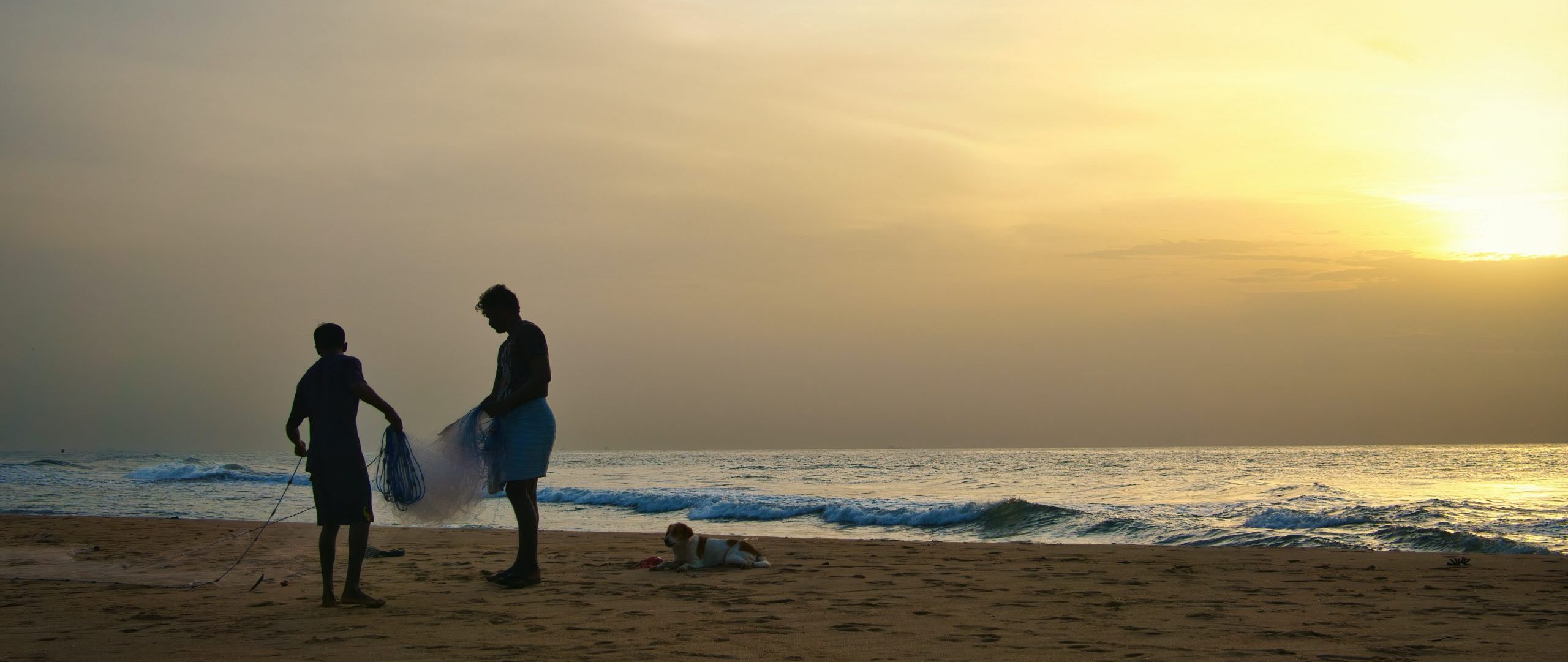
Closer to home, similar initiatives are also being piloted by organisations like Dashkin Foundation, a non-profit that focuses on conservation and natural resource management.
In their ongoing program ‘Fish for the future’, Dakshin works with the local fishing community in the Lakshadweep Islands and have launched a community-based fisheries monitoring programme. At this point, they support fishers and boat owners in capturing day-to-day data on their practices in logbooks. In the future, this work will be supplemented by a mobile application and a platform that seeks to bring together in addition to fishers, government agencies and civil society with the goal of leveraging this data for sustainable resource management.
What does it aim to solve for in the data economy?
- Institute systems for monitoring of fishery resources that are long-term, participatory and cost-effective. Involving local fishing communities in monitoring provides a platform for cost-effective data generation on a much larger spatial and temporal scale as compared to researcher-led monitoring.
- Create a platform for co-management of fisheries that centres fishers. Regular monitoring enables fishers, who are the primary stakeholders in the fishery, to see patterns in resource availability and can also create a sense of stewardship towards the environment in their minds. This is all the more relevant for data-scarce systems such as the Lakshadweep Islands.
Learnings and areas for further development and application
- In the stewardship ecosystem, Dakshin may be currently best categorised as an ecosystem enabler in that its activities at a grassroots level create the relevant capacities, skillsets while in parallel, also surfacing existing indigenous practices around conservation and environmental decision-making.
- By involving communities and placing them at the core of the knowledge creation process, the project has also enabled the democratization of knowledge.
- While the program is designed on the basis of extensive stakeholder mapping, the continued engagement with the community over the course of the program has led to further learnings that affect system design. It is therefore key to have a system of continuous engagement with the community that will help iteratively build out a co-management system that places them at the centre.
Learnings from community-oriented fisheries management initiatives
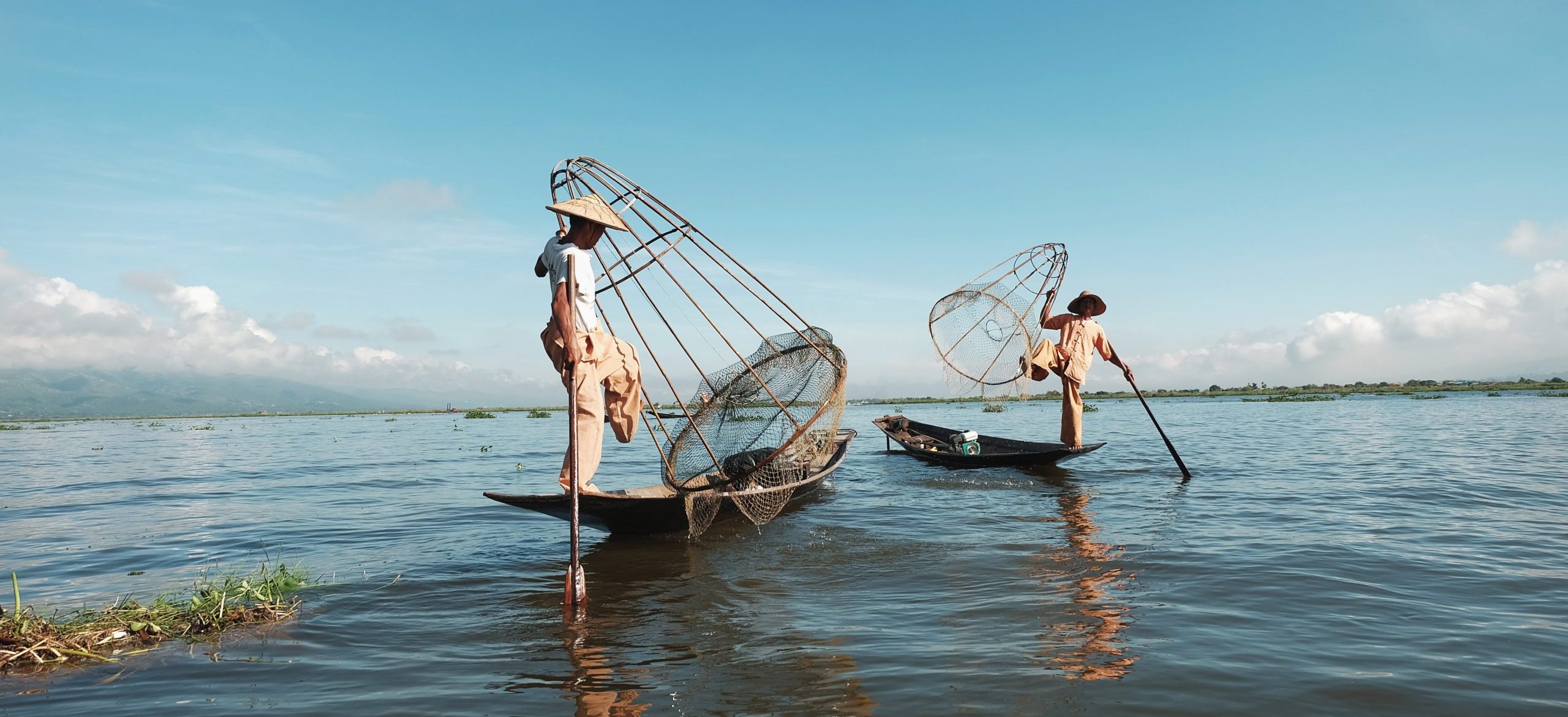
In addition to the case study analysis of five organisations, we also carried out a review of emerging literature on ocean conservation and sustainable fisheries management. Below, we have highlighted a few additional findings that can aid global conservation and related stewardship efforts.
- Entrust existing custodians of ecosystems with the agency to guide conservation efforts and interventions instead of penalisation
One approach to biodiversity conservation has been to demarcate fixed zones as Marine Protected Areas(MPAs). Within these zones data can be collected to monitor the population of specific species to better understand their wellbeing and ensure their productivity. To enforce the protection of these spaces, several economic/legal provisions and penalties are often set in place – to prevent overfishing, exploitation or destruction of habitats.
A study in Indonesia found that enabling indigenous peoples to have agency over protecting and sustaining these MPAs is a far more effective approach than enforcing penalties on these communities. Similar recommendations have been made with respect to participative coastal management and protection efforts in other parts of the world. This reinforces the need to ensure that indigenous peoples are at the helm of protection efforts and that subsequent data collection can take place under their leadership and guidance.
- Encourage the development of knowledge systems that combine traditional and indigenous knowledge with innovative data practices and diverse sources (iOT, geospatial, citizen-generated)
While mainstream data collection efforts are often seen as incompatible with indigenous knowledge and practices, few efforts are under way by the public sector to bridge this divide like the Queensland Government’s Indigenous Land and Sea Ranger Program and the Australian Government’s Reef Trust these both involves deepening partnerships with ‘traditional custodian groups’ to better understand and combine ancestral knowledge with ‘western biological knowledge’, explore how its re-use with their participation and consent and identify its possible future value for greater conservation efforts.
- Empower women as key governing actors in the marine and fisheries management ecosystems
Although their labour is largely invisibilized, women play a fundamental role in fisheries management and aquaculture systems across the globe – and comprise nearly 70% of its workforce. Adopting a gender-based lens should be enmeshed into the design of sustainable fisheries-based interventions and programs. From the perspective of data stewardship, requires a few considerations: first, responsibly collecting gender-disaggregated data and carrying out an analysis of the role women play in these respective fisheries/aquaculture ecosystems. Second, positioning women in key leadership positions when it comes to decision-making around management and data-related efforts. Lastly, relevant technical and infrastructural investments must be put in place to ensure that women are fairly compensated for their role and labour in the sector. Organisations like Abalobi keenly recognise the inequity and barriers women face and have responded by equipping fisherwomen with the capacity, tools and skills to be data-owners and leaders in onboarding community members to the foundation.

